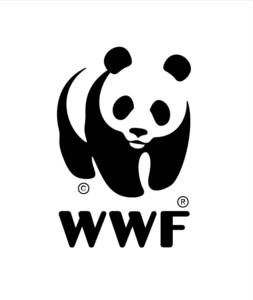Why is sustainable seafood good for… the economy?
If the ocean was an economy, it would be the 7th largest in the world. The sustainable use of its precious resources is the precondition to save and create responsible jobs and businesses.
Long-term thinking pays off
Fish and seafood are amongst the most traded commodities worldwide. Fisheries and aquaculture contribute to economic prosperity and development. The fishing industry will only be profitable in the long run if it detaches itself from short-term profit. Pursuing sustainable paths is imperative and benefits all.
Sustainable doesn’t mean less
Sustainable fishing doesn’t necessarily mean to catch less fish. It’s about catching the right fish, in tolerable quantities, whilst sparing others. It’s about using sustainable fishing gear and techniques that don’t just aim at maximising volume. The long-term conservation of valuable marine resources is the basis of economic prosperity.
Unused potential
Sustainable management of marine fish stocks could significantly increase profit. Experts estimate the unused extra potential at around 83 billion USD. [1] Better management could recover fish stocks, resulting in more and higher quality fish being caught.
Fighting pirates
Illegal fishing is the 6th largest global crime – its annual value is estimated at up to 36.4 billion USD a year. [2] Illegal fishing is also often linked to human rights abuses and horrific working conditions. [3]
Demand drives change
Besides politics, it’s the corporate sector and seafood consumers who decide upon the future of fishing and aquaculture. Increased demand for and the supply of sustainable products spark change towards more responsible and sustainable fisheries and farms. Help feed the world’s growing population and help improve human rights in the seafood sector by choosing sustainable fish.
3 facts on seafood and… economy
fact #1
The economic value of coastal and oceanic environments is valued conservatively at US$2.5 trillion each year. [4]
fact #2
1. USA, 2. China, 3. Japan, 4. Germany, 5. France, 6. UK, 7. Ocean, 8. Brazil, 9. Italy, 10. Russia, …
The annual gross marine product, the equivalent of a country’s GDP, would make the ocean the world’s 7th largest economy. [4]
fact #3
- 23%
The EU is the world’s biggest importer of seafood. 23 percent of fish traded globally is imported into the EU. [5] Half of the imports come from developing countries accounting for 61 percent of global exports. [6]
Ok, but what can I do?
European demand for sustainably caught tuna has been providing more than 6,000 fishermen in the Philippines with a better income and at the same time, protecting fish stocks. Choose sustainable fish!
[1] World Bank Group. 2015. The Sunken Billions Revisited. Progress and Challenges in Global Marine Fisheries. Page 2-3.
http://www.worldbank.org/content/dam/Worldbank/Topics/Environment/Sunken%20Billions%20Revisited-web-2.pdf
[2] Global Financial Integrity. 2017. Transnational Crime and the Developing World. http://www.gfintegrity.org/report/transnational-crime-and-the-developing-world/
[3] Chantavanich et al 2016. Under the shadow: Forced labour among sea fishers in Thailand. Marine Policy 68:1-7
[4] Hoegh-Guldberg, O. et al. 2015. Reviving the Ocean Economy: the case for action – 2015. WWF International, Gland, Switzerland. Geneva. Page 12.http://wwf.panda.org/wwf_news/?244770/Ocean-wealth-valued-at-US24-trillion-but-sinking-fast
[5] EUMOFA (European Market Observatory for Fisheries and Aquaculture Products). The EU Fish Market. 2014 Edition. Page 1.
http://www.eumofa.eu/documents/guest/Yearly%20Highlights/The%20EU%20fish%20market_EN.pdf
[6] Food and Agriculture Organization of the United Nations (FAO).www.fao.org/news/story/en/item/214442/icode















